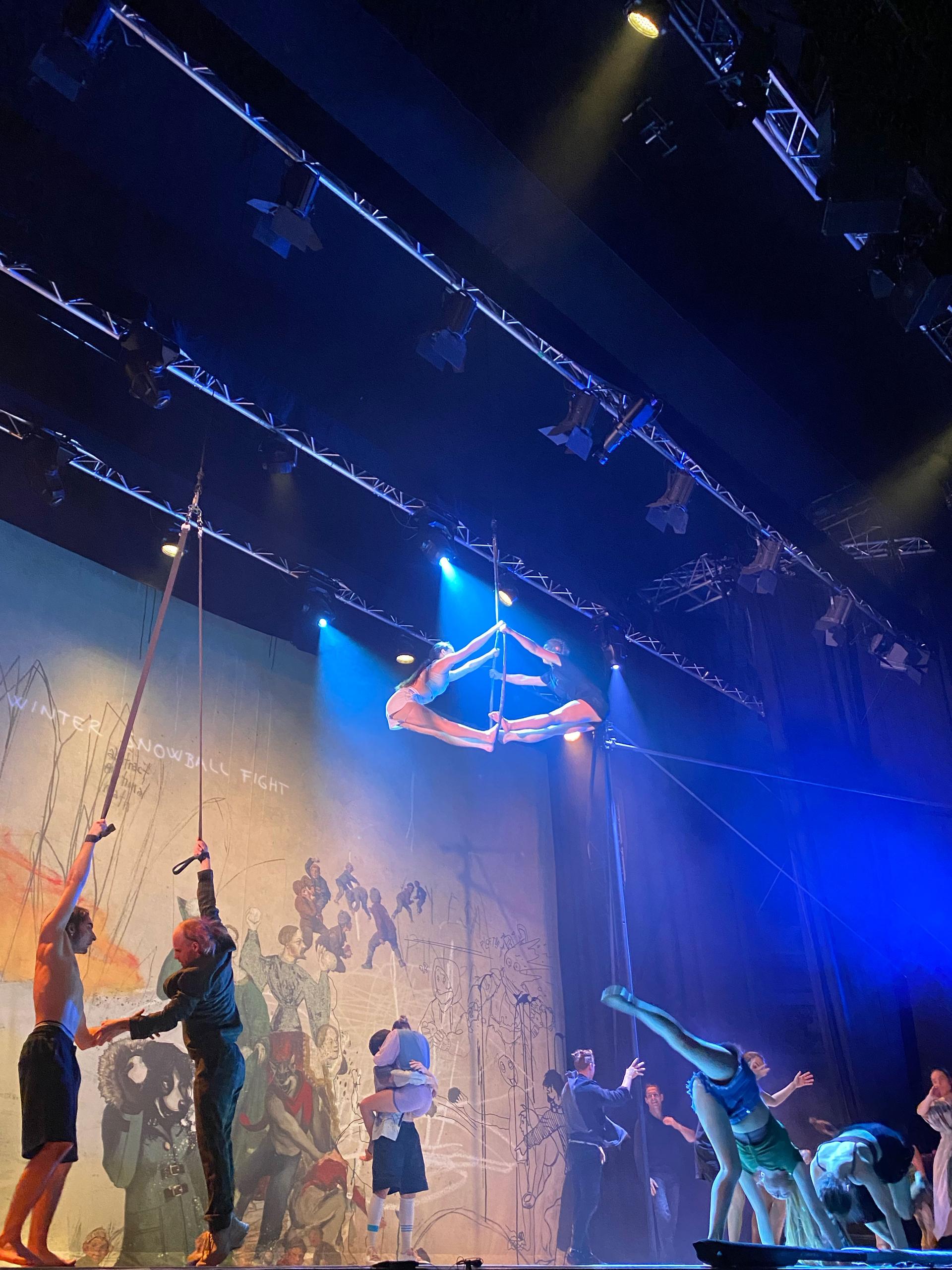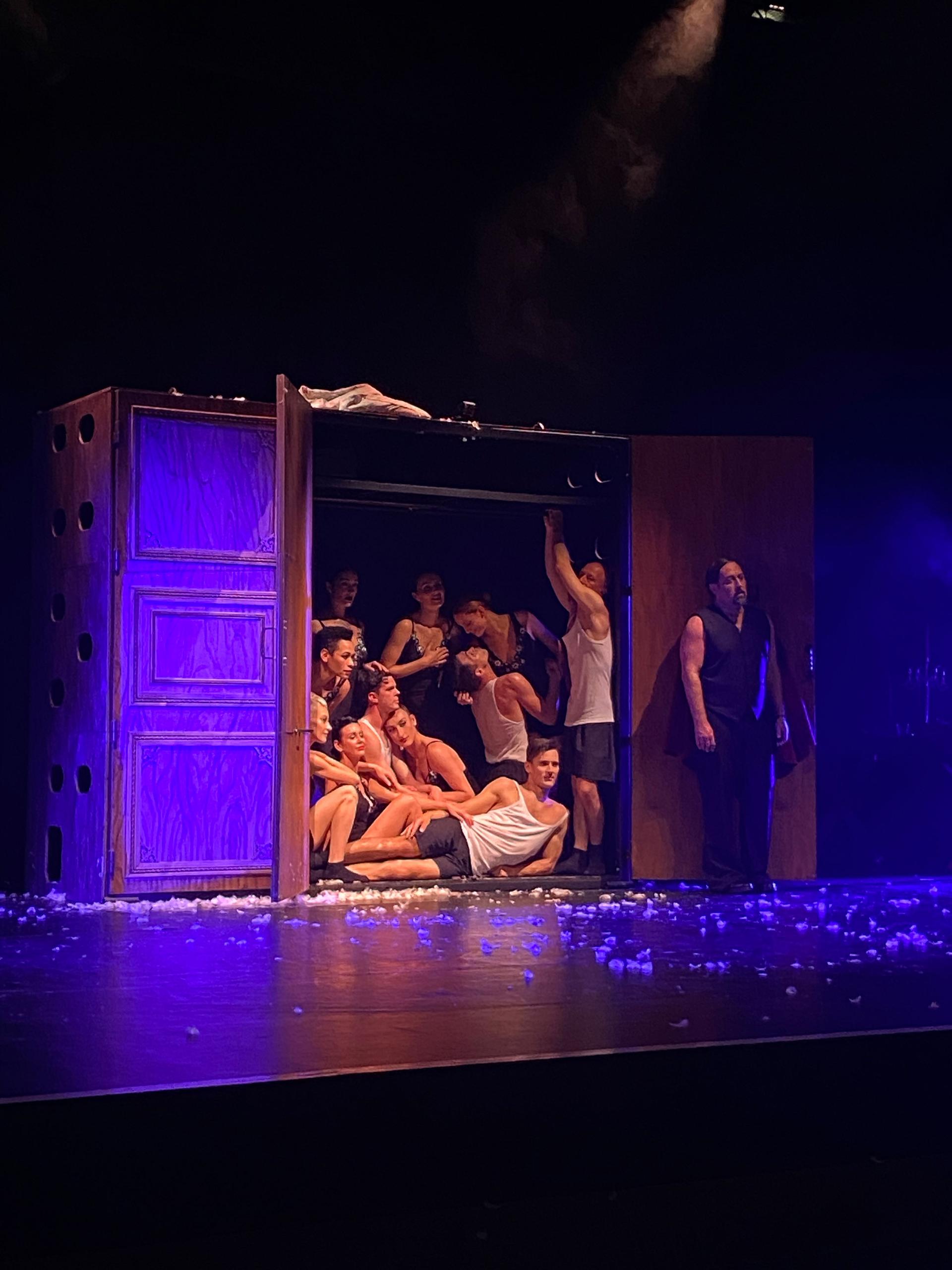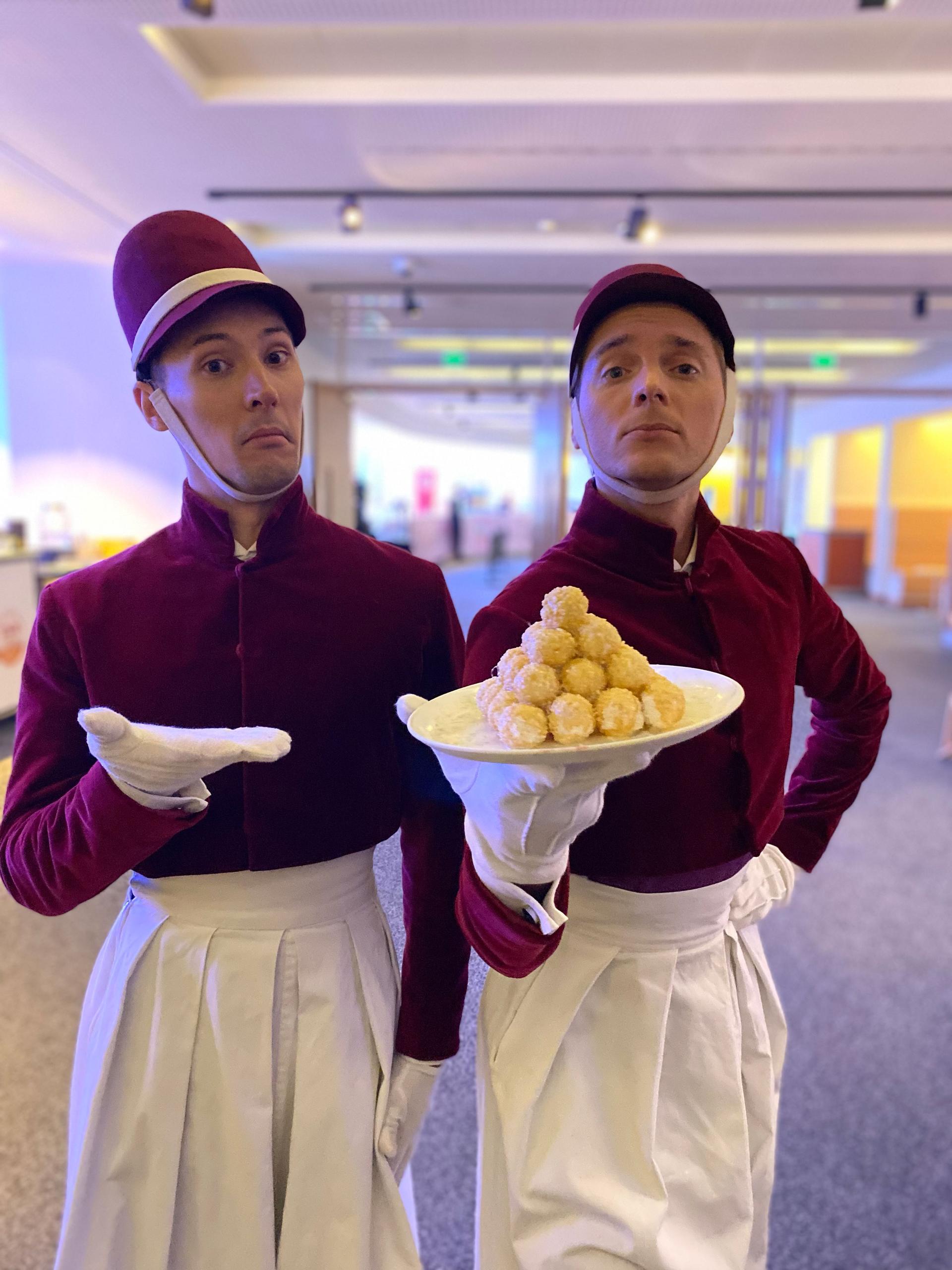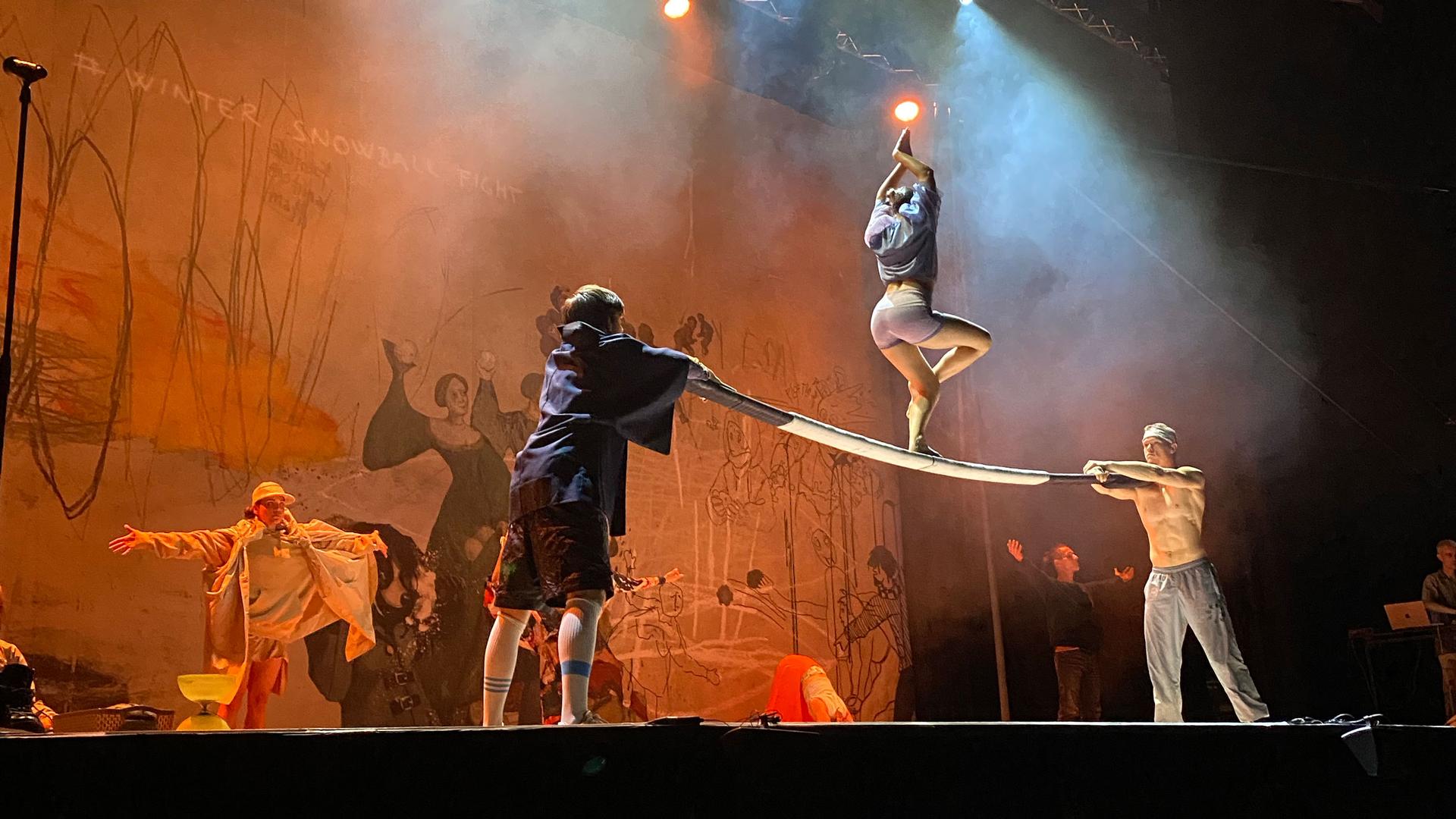In the first days of Russia’s assault on Ukraine in February, the renowned Czech circus company Cirk La Putyka arranged the evacuation of several dozen young dance students from Kyiv. After three days sheltering in a metro station, 17-year-old acrobat Katya Smirnova was rushed to the Czech border, but still didn’t believe the mission would be successful.
“The journey was scary. We thought that we would arrive at the border, and no one would be there. But they came. They saved us.”
A convoy of cars took Smirnova and her classmates to Prague, where they now study circus techniques alongside their young Czech colleagues. “Boom,” the show they have taken to Edinburgh, was rewritten to reflect the Ukrainian students’ perspectives of war and displacement.
The show featured frenetic juggling, breakdancing and aerial acrobatics, overlayed with spoken word reflections about coming of age during a conflict. The stage was a blizzard of bodies dancing, doing handstands and swinging from the ceiling.

Scotland has so far welcomed over 10,000 Ukrainian refugees since war broke out in February. About 700 are being accommodated on board a cruise ship docked in Edinburgh.
“One night a hundred Ukrainians came to the show. At the start of the performance, when we speak in our own language, one of the guys in the audience started to cry,” Smirnova said.
This August, the Scottish capital hosted hundreds of thousands of visitors taking in music, theater, dance, and comedy performed by artists from over 50 countries at the Edinburgh International Arts Festival. On Monday, the world’s biggest annual arts festival came to a close.
The students still don’t know how long they might be exiled. Men in Ukraine are still banned from leaving and must wait to be drafted into the war, creating agonizing decisions for Smirnova’s colleague, Oleksii Vakal.
“It’s easy to return to Ukraine but really hard to get out again,” Vakal, 17, said. “So, we’ll see. I hope that when I’m going to be 18, this situation will be finished.”
Smirnova, from the eastern city of Kharkiv, said that representing Ukraine during wartime comes with an added sense of responsibility.
“We worry that soon people may not be interested in the war, that’s the reason why we are here.”
Vakal agreed.
“It’s important to represent the same thing but in different ways, through song, through dance, through circus. Some people say that we are the “heads-down generation” but we want to show our freedom through our art.”

At a nearby venue, the Freedom Ballet of Ukraine showcased “Boudoir,” a racy and anarchic cabaret developed at Kyiv’s Molodyy Theater. To thumping music, performers in tuxedos and lingerie waltzed across the stage and leapt from the top of props, occasionally dancing with audience members.

Backstage, dancer Igor Kuleshyn reflected on the importance of cautiously restarting cultural life for the people in Ukraine’s beleaguered capital.
“People just need to go somewhere to do something else for an hour or two, to meet friends, to go to the cinema, the theater, because this war is around us every minute, every second. Today in Kyiv there were four air raid sirens,” he said.
Kuleshyn, 30, and fellow dancer Pavlo Bondarenko, 34, were given special permission by the Ukrainian government to travel to Edinburgh.
“It’s a little bit difficult to understand that you can leave the country and the rest of the men cannot,” Bondarenko admitted.
Though both men are keen to stress that the performance is not about the war, they recognize that representing Ukraine at this festival is an important act of cultural diplomacy.
“We know why we’re here, why the Ministry of Culture allowed us to be here, we have an important mission.”
Both men were joined by their wives and young daughters during the festival, who are planning to stay in the United Kingdom until it’s safe to return. More valuable than anything, this long-awaited family reunion in Edinburgh gave them a glimpse of how things used to be before the war.
“It’s like the old life, our lives are separate from before and after the war. It’s like two different lives.”
But while the families will stay here, in a few days’ time the men will return to Ukraine and await the call for military service.
“Friends back home say, ‘Oh, you’re in Scotland, you left?’ I say, “yes, but don’t worry I’m coming back,”” Kuleshyn said with a dark smile.
Even if these artists would like to forget the war, their very presence at festivals like this seems like an act of defiance.
And with creeping levels of war fatigue among Western electorates, Ukrainians are desperate to maintain as much attention as possible to their country’s struggle. If not by news from the battlefield, then through cultural accomplishments.
